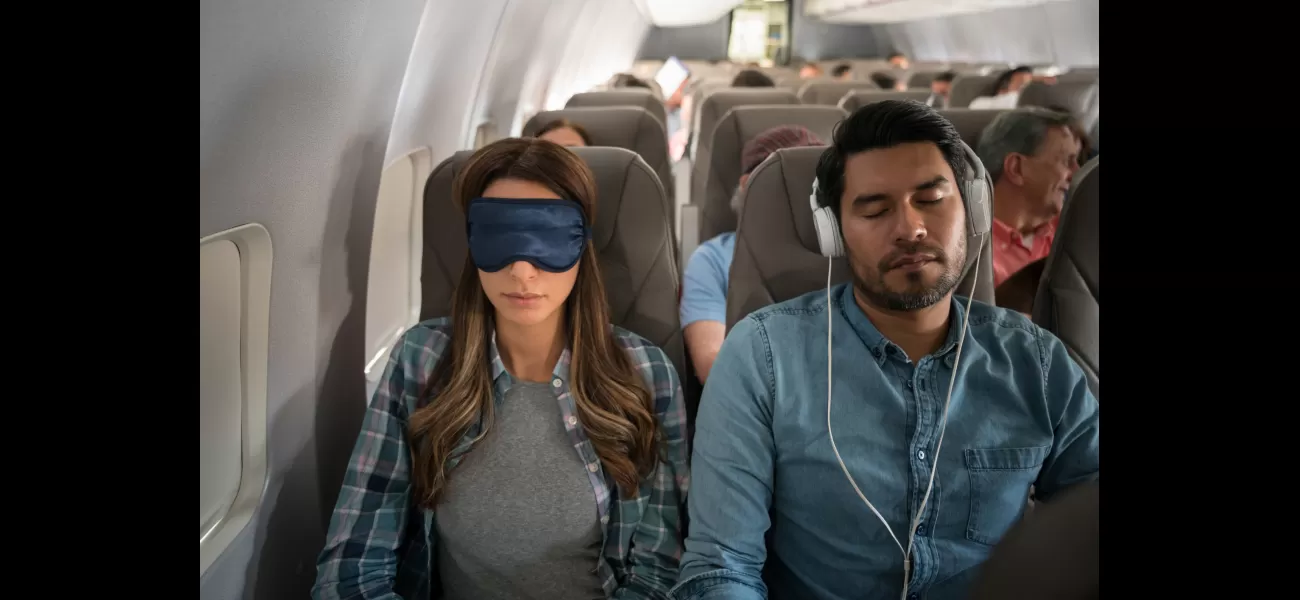Brits have a go-to method for beating jet lag.
Planning a long flight? Pay attention.
April 14th 2024.

Jet lag can be quite a nuisance when traveling. Whether it's a quick getaway to the bustling city of New York or a much-needed retreat to the tropical paradise of Thailand, there's no denying the excitement of a long-haul holiday. However, there's one downside to flying outside of Europe - the dreaded jet lag.
For those unfamiliar, jet lag is a temporary sleep disorder that occurs when we travel across different time zones. It can leave us feeling lethargic and unable to regulate our sleep cycle, thanks to our circadian rhythms being thrown off balance. While it may not last forever, it can definitely put a damper on our holiday or make it difficult to readjust to our regular routine upon our return.
In fact, a recent study by hospitality group YOTEL found that 27% of Brits have actually called in sick to work due to jet lag, while 29% reported it negatively impacting their enjoyment of the trip and 32% even avoiding long-haul travel altogether because of it.
But fear not, there are ways to minimize the effects of jet lag. The study revealed that 18% of Brits swear by compression socks, 7% wear sunglasses indoors, and 12% listen to loud music. While there isn't enough scientific evidence to prove that these methods truly work, travel expert Jane Hawkes suggests that compression socks may help with improved circulation and a better flight experience.
So, how can we avoid jet lag altogether? According to Jane, it's best to lay off the caffeine and alcohol. While it may be tempting to indulge in a few cups of coffee to stay alert during the flight, it can actually make matters worse. Similarly, alcohol may help you fall asleep quicker but can impact the overall quality of your sleep and make jet lag symptoms worse. Instead, try listening to soothing podcasts or using meditation apps to induce sleep and stay hydrated by drinking plenty of water.
Another helpful tip is to make gradual changes to your bedtime and meal routines before your flight. If you're used to going to bed at 10pm but will need to stay awake for a longer period of time at your destination, try shifting your bedtime to 11pm, then midnight, and so on. The same goes for adjusting your waking time if you're not accustomed to early mornings.
Sleep expert Dr. Charlotte Edelsten also recommends shifting all activities to match the local time upon boarding the flight. This means changing your watch and aligning your meal times, sleep schedule, and exposure to light and dark accordingly. Additionally, staying hydrated before, during, and after the flight is crucial, so be sure to drink plenty of water.
If possible, try to book a flight that lands during the day and make an effort to get outside and soak up some natural light upon arrival. And as tempting as it may be, avoid taking naps upon arrival as it can disrupt your body's internal clock and prolong the effects of jet lag. Lastly, prioritize getting enough rest before your trip to make the transition smoother and lessen the impact of jet lag.
Do you have any jet lag stories to share? We'd love to hear from you! Get in touch by emailing [INSERT EMAIL].
For those unfamiliar, jet lag is a temporary sleep disorder that occurs when we travel across different time zones. It can leave us feeling lethargic and unable to regulate our sleep cycle, thanks to our circadian rhythms being thrown off balance. While it may not last forever, it can definitely put a damper on our holiday or make it difficult to readjust to our regular routine upon our return.
In fact, a recent study by hospitality group YOTEL found that 27% of Brits have actually called in sick to work due to jet lag, while 29% reported it negatively impacting their enjoyment of the trip and 32% even avoiding long-haul travel altogether because of it.
But fear not, there are ways to minimize the effects of jet lag. The study revealed that 18% of Brits swear by compression socks, 7% wear sunglasses indoors, and 12% listen to loud music. While there isn't enough scientific evidence to prove that these methods truly work, travel expert Jane Hawkes suggests that compression socks may help with improved circulation and a better flight experience.
So, how can we avoid jet lag altogether? According to Jane, it's best to lay off the caffeine and alcohol. While it may be tempting to indulge in a few cups of coffee to stay alert during the flight, it can actually make matters worse. Similarly, alcohol may help you fall asleep quicker but can impact the overall quality of your sleep and make jet lag symptoms worse. Instead, try listening to soothing podcasts or using meditation apps to induce sleep and stay hydrated by drinking plenty of water.
Another helpful tip is to make gradual changes to your bedtime and meal routines before your flight. If you're used to going to bed at 10pm but will need to stay awake for a longer period of time at your destination, try shifting your bedtime to 11pm, then midnight, and so on. The same goes for adjusting your waking time if you're not accustomed to early mornings.
Sleep expert Dr. Charlotte Edelsten also recommends shifting all activities to match the local time upon boarding the flight. This means changing your watch and aligning your meal times, sleep schedule, and exposure to light and dark accordingly. Additionally, staying hydrated before, during, and after the flight is crucial, so be sure to drink plenty of water.
If possible, try to book a flight that lands during the day and make an effort to get outside and soak up some natural light upon arrival. And as tempting as it may be, avoid taking naps upon arrival as it can disrupt your body's internal clock and prolong the effects of jet lag. Lastly, prioritize getting enough rest before your trip to make the transition smoother and lessen the impact of jet lag.
Do you have any jet lag stories to share? We'd love to hear from you! Get in touch by emailing [INSERT EMAIL].
[This article has been trending online recently and has been generated with AI. Your feed is customized.]
[Generative AI is experimental.]
0
0
Submit Comment





